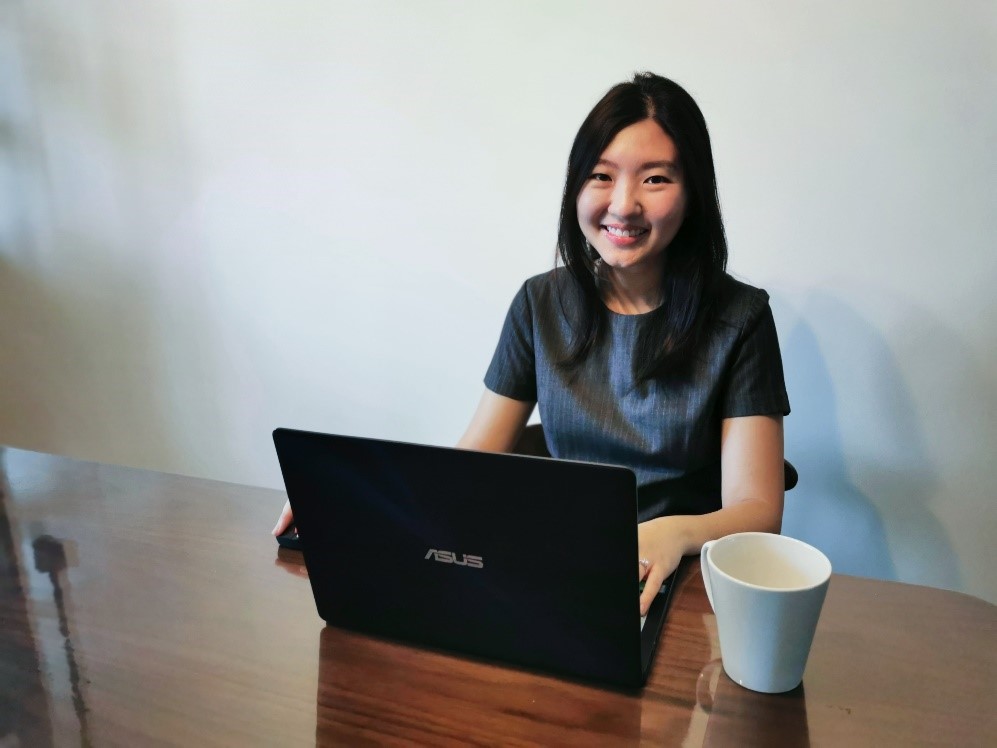For Alynn Tan, the launch of the Master of Science in Accounting, Data & Analytics (MSA) programme at Singapore Management University (SMU) came at just the right time. Back in 2018, Alynn was a successful auditor with five years’ experience under her belt, and she was researching post-graduate qualifications to upskill and take her career to the next level.
Just as Alynn was applying for another course, she noticed that SMU had set up a new and unique programme – the MSA is the first specialised Master’s degree in accounting data and analytics in Asia. “I didn’t want a total career change; I wanted to keep my audit focus but add new knowledge in data and analytics. That’s why the MSA was a perfect fit,” explains Alynn, who graduated earlier this year and has since used her new qualification to land a data-driven role at EY in Singapore.
“Without upgrading my skills via the MSA, I risked losing my job to a computer program,” says Alynn, adding that some of the more mundane tasks traditionally carried out by auditors and accountants are gradually being automated. To stay relevant in the near future, auditors need to “operate at a higher level” and offer more strategic advice to clients, says Alynn. “The job is becoming less about end-to-end processes and more about providing insights, including through making better use of data. As accountants, we need to add more value and support companies to reach better decisions,” she adds.
The MSA helps accounting professionals do just that, says Alynn. The programme focuses on the application of data technology in accounting, giving students knowledge of how and where to apply technological expertise in real-world settings. “The skills you learn on the MSA – such as modelling, statistical reviews, and data visualisations – are becoming increasingly important to more jobs in accounting. For example, there are new reporting standards in Singapore that emphasise predictive analytics, rather than historical goals, in financial statements,” she adds.
Alynn is currently using her new expertise in her role as a data analytics and automation assistant manager at EY and says she could not have got this job without the MSA degree. Her team, which was only established in early 2020, helps the firm’s auditors and their clients make the most of automated tools. “We step in when auditors have a data-focused task, like visualisation. As a former financial statement auditor, I understand their pain points, and thanks to my MSA I now have skills that can make life easier for them,” she says.
The MSA takes a deep dive into data and analytics – including forecasting and forensic analytics, programming with data, and analytics for financial instruments – that each focus on different aspects of the overall subject. “While at first not all the modules seemed directly relevant to my career, as I went through the MSA I found that they were all linked together and provided the complete picture I wanted,” says Alynn.
It wasn’t just the content of the modules that impressed Alynn; it was also the way they were taught. “The lessons are seminar-style, so there’s a lot of interaction with the professors. The teaching faculty are very dedicated to your learning – they go beyond the norm and help you network with industry players. And there’s a project to bring it all together at the end of each module – a business problem that you work through in small groups,” she says. For Alynn, these projects were a highlight of the programme. “I learned a lot of new perspectives from working with others in my group and from listening to the presentations of other groups. The project in the analytics for value investing module was especially interesting as we had to devise innovative strategies to get market gains,” she says.
Towards the end of her MSA, Alynn also worked with classmates on a larger capstone project, in which they built a CFO dashboard for a micro-loan company using predictive analytics. Collaborating on projects with corporates and other external partners is part of the SMU-X experiential learning framework, which gives students valuable industry exposure so they can apply academic theory outside of the classroom.
“At SMU, you can see the applicability of what you learn. For example, the capstone project showed me what it’s like to use analytics skills as a consultant, which is similar to what I’m now doing in my job at EY. The project replicated the reality of the workplace – that’s the unique advantage of SMU-X learning,” says Alynn. Because she was tackling real-life problems, Alynn says she didn’t always reach definitive conclusions during her MSA course work. “In school, there was always one correct textbook resolution to everything, but the real world is much more fluid and the MSA programme reflects this – it allows students to take different and innovative approaches to providing solutions,” she adds.
The MSA is taught over two years part-time, or over one year on a full-time basis, starting in August. Alynn, who studied part-time, says efficient time management is critical to doing well on the programme. “Some people think a Master’s degree is a free ticket to a new job, but in reality, you need to put in a lot of time and effort. I was in a full-time role for most of the degree, so I spent weekends working on projects and sacrificed socialising with my friends,” she adds. “But it was definitely worth the effort as it has taken my career in an exciting direction, especially during this challenging time. I’d really recommend the programme for anyone who wants to be exposed to new ideas and acquire new technologies in a real-world learning environment.”
Applications for the MSA programme are now open, click here to apply. For more information, please email msa@smu.edu.sg.
In collaboration with efinancialcareers





